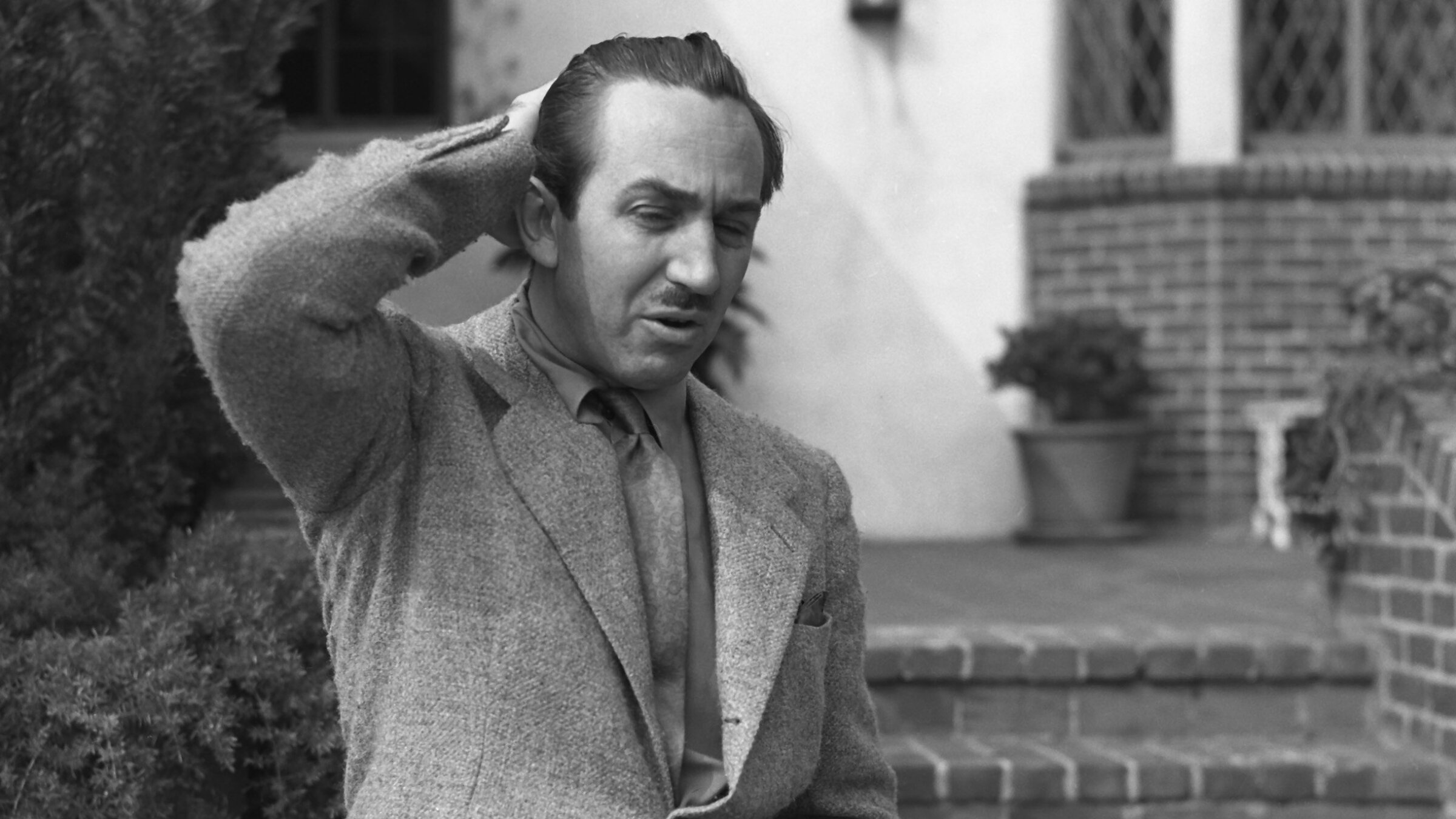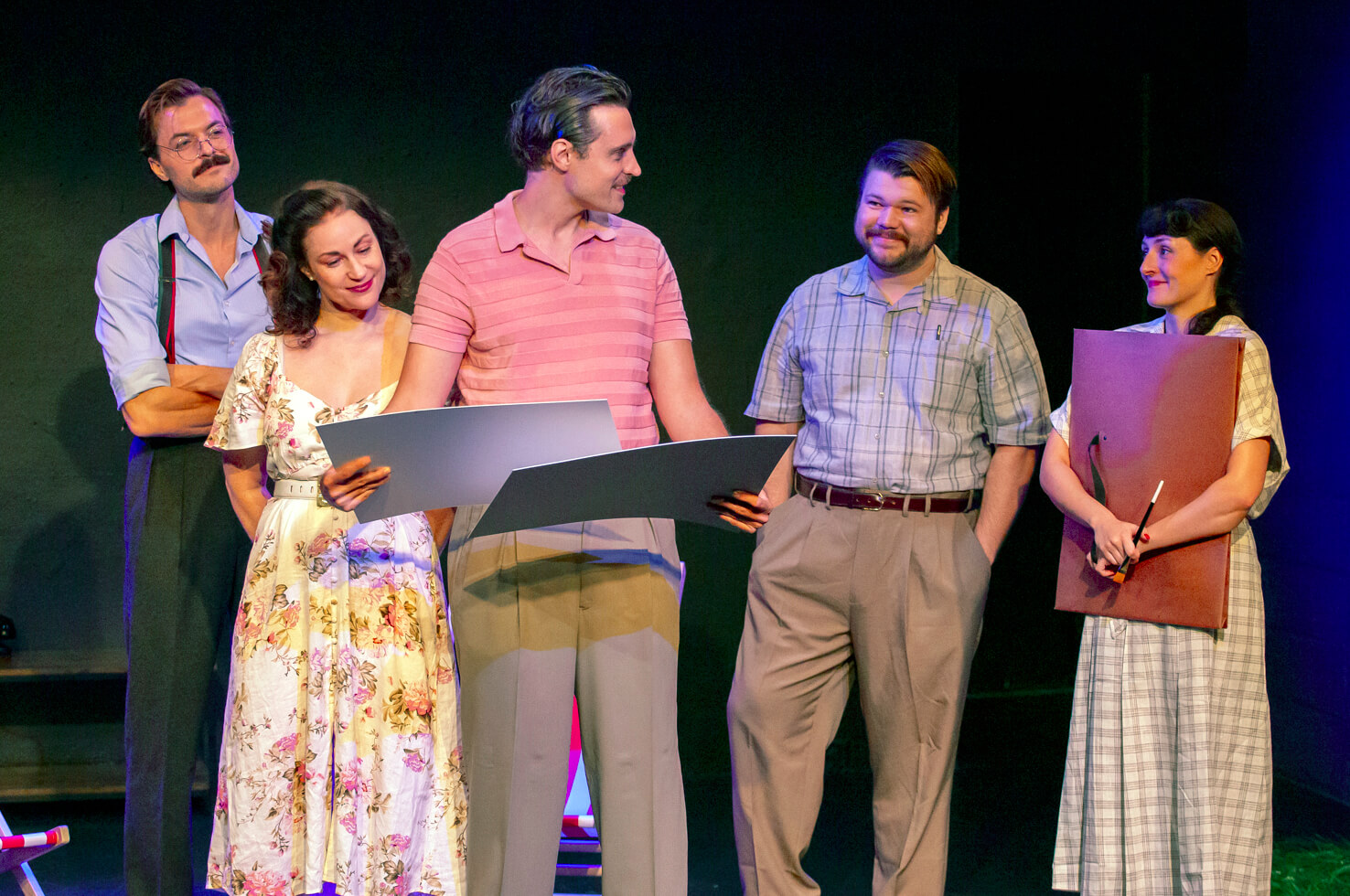When Walt Disney went South of the Border to fight Nazi influence
The new play ‘The Animals Speak’ details Disney’s 1941 visit to Latin America

Walt Disney had a famous working vacation to South America — bankrolled by the U.S. government. Photo by Earl Theisen/Getty Images
1941 was a bitter year for Walt Disney. Fantasia and Pinocchio had underperformed at the box office. His unionized workers were striking for better pay. And in the middle of it all, the U.S. government made him go to South America to dissuade Brazil, Argentina and Chile from throwing in their lot with the Nazis.
The largely forgotten goodwill tour is the basis of Cameron Darwin Bossert’s new play The Animals Speak, about Disney in the 1930s and ‘40s. As played by Bossert, Disney is twitchy, foul-mouthed and reluctant to leave the states while his Studio is in crisis.
“We think that he was able to manage himself in public, because there’s all this footage of him talking to the camera and standing at his desk,” said Bossert in a Zoom conversation, Disney’s signature slick now gone from his hair, the mustache remaining. “But when it came time to actually interact and have to improvise with people he was always very conflicted and awkward.” Disney always said he didn’t want to shake hands — Mickey Mouse was the affable one.
Bossert’s fascination with Disney the man sparked when he saw the filmmaker’s guest appearance on What’s My Line from the 1960s, looking uncomfortable as fellow celebrities sung his praises when his identity was revealed. The tension between Disney’s persona and his real personality was something Bossert, founder of the hybrid theater streaming company Thirdwing, wanted to play.
The Animals Speak encapsulates how ill-at-ease Disney was brushing shoulders with gauchos and speaking to school children in a soft power push away from fascism.
But it wasn’t ideology or patriotism that drove Disney to head South. Disney’s brother and accountant, Roy, was able to get the Roosevelt administration to guarantee loans for the studio’s next pictures, and sensed that Walt, ever the workaholic, needed a break — or at least a working vacation. Taking with him a crew of animators and artists (known as “El Grupo”), Disney endeavored to pay tribute to Latin America with the film Saludos Amigos, an animated tour of the region’s culture featuring documentary footage of the trip.
What did Disney personally think of the Nazis before America entered World War II? Probably not much.
“I don’t think he was political,” Bossert said. But he also wasn’t, as is often claimed, an antisemite. That, Bossert claims, is a rumor that was planted in newsletters by striking workers, led by cartoonist Art Babbitt (né Babitsky).
Certainly Disney hated Babbitt — but not because he was Jewish. Disney’s experience with the strike, which he viewed as an ultimate betrayal, slowly made him a Republican.
Despite the anti-fascist aims of the 1941 Disney tour, Bossert’s approach is more personal, a character study of a man at the lowest moment of his life, and the unexpected renewal that came from a change of scene. The play also spends much of its runtime with Disney’s wife, Lillian, and Mary Blair, who found a new, modernist style during the trip and went on to become one of Walt’s favorite animators.
We’ll never know exactly how big a role the trip played in swaying public opinion away from the Third Reich — Argentina, at least, became a refuge for Nazis after the war.

“It could have been worse if Walt didn’t go down to South America. Who knows?” Bossert said.
The playwright referenced Sidney Lumet, who doubted if his movies about justice — from 12 Angry Men onto The Verdict — made a difference, or simply lulled an audience into complacency with their poetic justice.
“In terms of the soft power, and ‘we’re just going to make fun cartoons just to show how friendly that we are, and it’s not going to be about anti-fascism,’ that I think actually could be more influential, because you’re not trying to send a message,” said Bossert.
If Disney himself has a rap for being “fascist adjacent,” Bossert says, “where fascists want to be feared, he wanted to be loved more.” That may well have been his tragedy.
Bossert’s The Animals Speak plays through Aug. 17 at the Wild Project in Manhattan. Tickets and more information can be found here.
















